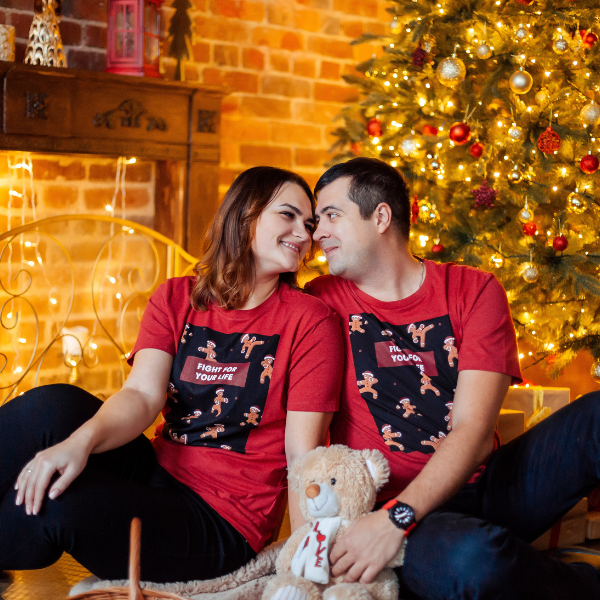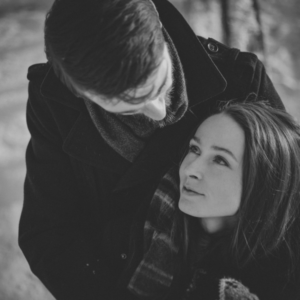Why Bother with Relationship Counseling?
Relationship counseling is like getting a tune-up for your car, but instead, it’s for your love life. It’s about tackling those pesky relationship hiccups and transforming the “meh” into marvelous. Recognizing when it’s time to get some relationship advice and shaking off any shame about it are big steps toward happier partnerships.
When to Sit Down with a Relationship Counselor
Realizing it’s time for counseling might just be the wake-up call your relationship needs. It’s about taking a proactive step to tackle issues head-on. Here’s a quick rundown to see if it’s time for a little love intervention:
| Hints You Need Help | What’s Going On |
|---|---|
| Barely survived yesterday’s argument | You’re talking but not really fixing anything |
| Talking like cavemen | Grunting and pointing have become the main form of communication |
| Netflix feels like a third party | Cuddling up is now just a myth of ancient times |
| Someone’s been sneaking around | Trust took a fast exit when nobody was looking |
| Wanting black coffee vs. espresso | Your life plans are on totally different menus |
| Dusty old dramas came back | Problems are hitting “repeat” instead of “resolve” |
Spotting these red flags and bringing in a counselor can provide fresh perspectives and practical strategies to get back on track.
Kicking the Stigma and Grabbing Some Help
Getting professional help for relationship wrinkles might feel awkward—like Granddad in skinny jeans awkward. But letting those perceptions stop you doesn’t do anyone any good. Here’s why giving your relationship a helping hand is a must:
Rebranding counseling as a smart move can tame those second thoughts. It’s about getting ahead with better communication, mutual understanding, and a commitment to making the relationship rock.
Checking out relationship therapy can help couples work on their talking skills, rebuild what’s been broken, figure out dealbreakers, and tighten those emotional ties. A savvy relationship counselor can help partners ride out the rough patches, build back better, and nurture a loving, lasting connection.
Benefits of Relationship Counseling
Relationship counseling opens doors for couples to better their conversations, tighten their bond, and tackle issues hand in hand. Couples diving into counseling can see perks sprouting like daisies, ensuring their relationship stays in tip-top shape. Here’s a peek at what relationship counseling can bring:
Better Communication
Good chats sit at the heart of any solid relationship. Counseling gives couples a cozy and controlled setting to boost their chatting skills. With a guide from seasoned counselors, partners get the hang of sharing their thoughts, feelings, and wants in clear and caring ways. Talking better means fewer mix-ups, more understanding, and a tighter connection.
Conflict Resolution
Squabbles are a given in any relationship. The key lies in how couples handle them. Counseling sessions help couples tackle ongoing tiffs, dig out the issues hiding beneath, and pick up useful ways to settle disagreements. Learning to see each other’s side and practicing smart conflict strategies can lead couples to a more peaceful, supportive way of living together.
Building Emotional Connection
Feelings matter huge in any happy relationship. Counseling offers a space for couples to explore and boost their emotional ties. By sharing stories, admitting weaknesses, and discussing dreams, partners can strengthen their emotional connection and build trust. Structured exercises and thoughtful chats help couples grow closer, creating a solid base for longtime happiness.
Upping your chatting game, handling fights, and feeling closer can flip a relationship on its head, letting partners face hurdles with understanding and toughness. Relationship counseling becomes a golden ticket for couples hungry for a stronger, loving, and ever-lasting bond. Curious for more on keeping the love alive? Check out our piece on relationship communication.
When to Consider Relationship Counseling
Sometimes in a relationship, you just hit that point. You know, the spot where communication feels more like crossfire, and unresolved issues seem to stick around like the last guest at a party. This could be the perfect moment to think about relationship counseling. It’s not just about solving problems; it’s about rekindling the magic between you two.
Signs Indicating the Need for Counseling
Now, how do you know if it’s time to get a little help? Some red flags are pretty much universal. Keep an eye out for:
| Signs Maybe It’s Time for Counseling |
|---|
| Endless bickering instead of talking |
| Same fights, different day |
| Feeling more like roommates than soulmates |
| Distrust, or someone’s been cheating |
| Stalemates over any disagreements |
When these signs start flashing like a neon “HELP” sign, it might be time to chat with a professional. If you want to dig deeper into toxic relationships, don’t miss our piece on signs of a toxic relationship.
How Counseling Can Give Your Relationship a Boost
Counseling isn’t just a last-ditch effort to save a sinking ship. It’s a chance for both of you to speak your minds in a place where yelling won’t work. Here’s what you might gain from it:
- Learn to talk like grown-ups and really hear each other out.
- Pick up some conflict ninja moves to sort things out without the drama.
- Reignite that spark, turning awkward silences into meaningful chats over coffee.
- Uncover recurring habits that might be throwing a wrench in the works.
- Build back the trust and find ways to keep things fresh and exciting.
Jumping into relationship counseling offers more than just quick fixes. It’s a toolkit for making your relationship a place where both partners feel heard and valued. Want more insights into creating lasting bonds? Check out our read on healthy relationships.
Realizing when to call in a counselor and what they bring to the table can set you both off on a path filled with growth, connection, and a whole lot of love.
Types of Relationship Counseling
Alright, let’s talk about the different ways to improve relationships. There’s more than one path to tackle relationship woes, so choosing the right kind can make a world of difference. Let’s dive into three flavors of relationship counseling that’ll help you figure out what’s best for you and your person.
Individual Counseling
When you hear “individual counseling,” think of it as personal growth with an extra kick. This one-on-one time with a counselor isn’t just for sorting out your own stuff; it can be a game changer for the relationship too. It’s about digging deep into your own feelings and behaviors that might be throwing a wrench in your love life. Plus, as folks get to know themselves better, they often see improvements all around, especially if one partner’s struggles are affecting the two of you. It’s a solid choice if one of you has personal hurdles to overcome.
Couples Counseling
Now, here’s where both parties get involved. Couples counseling brings both of you together to hash things out with some professional help on the sidelines. It’s great for tuning up communication, ironing out conflicts, or just getting closer in general. A counselor will guide you through conversations, spotlighting trouble spots in the way you relate, and handing over tools and tricks to patch things up. If talking feels more like walking on thin ice, trust is on the rocks, or intimacy is taking a dive, this is your go-to.
Group Therapy
This one’s a bit different—think of a mini support circle rather than a couples-only affair. In group therapy, you’ll join a bunch of folks, hearing out each other’s relationship battles. While you’re not paired with your partner here, swapping stories and solutions with others can offer some fresh perspective. If you’re keen on boosting your social skills and picking up diverse angles on relationship issues, this could be your jam. Plus, there’s something pretty powerful about knowing you’re not alone in your struggles.
By sifting through these choices—individual counseling, couples counseling, and group therapy—you’ll get a sense of what fits your needs. Each style has its own perks and can help patch up or fortify your connection. If you’re curious about whether therapy could be right for your situation, check out our relationship therapy guide for more nuggets of wisdom.
Finding the Right Counselor
Picking the right counselor for relationship therapy is make-or-break. Knowing what to look for can turn casual chit-chat into heart-to-heart breakthroughs, helping both of you find that sweet spot in your relationship counseling journey.
Qualities to Look for in a Relationship Counselor
-
Empathy: A top-notch counselor genuinely gets what you’re going through. They won’t judge, but they’ll understand and validate each partner’s feelings. Empathy creates a safe zone where you can lay it all out on the table.
-
Communication Skills: Communication isn’t just chatting—it’s about actively hearing both sides, sparking meaningful discussions, and giving feedback that’s easy to grasp and constructive.
-
Experience and Training: Always aim for a pro. Look for someone trained specifically in handling couples. Experience with different relationship hurdles means they bring real-life insights into your sessions.
-
Non-Biased Approach: You want someone who’s fair. Your counselor should be neutral, offering balanced support to ensure both partners feel equally valued.
-
Respect for Privacy: Your secrets stay yours. Confidentiality is king, so pick someone who keeps your personal stories under wraps.
How to Choose the Best Fit for Your Relationship
-
Research and Referrals: Start your search online or ask around. Friends, family, or even doctors might point you in the right direction. Check out reviews to see what others think of their style and success rate.
-
Initial Consultation: Test the waters with an initial session—often it’s free or discounted. You’ll get a feel for the counselor, discuss your issues, and see if they make you comfortable without burning a hole in your pocket.
-
Communication Style: During that first meeting, pay attention to how they communicate. They should match your vibe and make you feel listened to.
-
Goals and Expectations: Lay out what you’re looking to achieve and see if the counselor is on the same page. Everyone should be rowing in the same direction for counseling to work.
-
Feedback and Progress: As you get into therapy, keep an eye on how it’s moving. Share your thoughts, influences, and worries upfront to keep things moving forward in a way that benefits you both.
Zeroing in on these qualities and following these steps to pinpoint the right counselor can set your relationship up for real breakthroughs. Real success comes from teamwork between partners and the counselor, driving toward better understanding and a bit of magic in the relationship.
The Process of Relationship Counseling
Taking the plunge into relationship counseling can be eye-opening for couples wanting to patch up or reinforce their connection. Being clued up on what goes down in these sessions, along with the tips and tricks on offer, can seriously help couples make the most of the experience.
What to Expect in Counseling Sessions
Relationship counseling usually involves hanging out with a therapist who knows their stuff when it comes to couples. These sessions are all about getting everything out in the open – your thoughts, feelings, and worries – in a chill, welcoming space. Think of the counselor as your relationship referee, there to help highlight the real issues and guide you towards communicating better.
At first, couples focus on pinpointing the sticky bits in their relationship and figuring out what they want from the counseling. Over time, the sessions might include various activities and chatter to help each partner better understand where the other is coming from and work on win-win solutions.
Sample Agenda for a Counseling Session:
| Session Agenda |
|---|
| Getting to Know Each Other and Building Trust |
| Discussing Concerns and Setting Goals |
| Practicing Communication Techniques |
| Learning Techniques for Handling Disputes |
| Assignments for Growth Beyond the Session |
Strategies and Tools Offered in Relationship Counseling
Counseling is stocked with a toolbox of tricks to help couples sort out their problems and keep the spark alive. Check out what’s on the table:
-
Communication Skills Training: Learn how to talk and listen so that you both get what’s being said. This sorta training cuts back on unnecessary fights and misunderstandings.
-
Conflict Resolution Techniques: Here’s where you learn to disagree without all the drama, finding solutions that work for you both. It’s about understanding, not winning.
-
Emotional Regulation Exercises: The therapist will show you how to keep your cool when chats get heated, ensuring you handle tough topics with grace and understanding.
-
Problem-Solving Strategies: Get your hands on game plans to tackle relationship hiccups as a team. It’s teamwork in action – making decisions together, not alone.
-
Homework Assignments: Yep, there’s homework. But it’s the fun kind – activities designed to boost your connection and improve listening skills. Practicing what you learn is a biggie.
By tapping into these strategies and tools, couples can learn to talk better, settle disputes smoothly, and deepen their emotional bonds. When both partners dive in with honesty and dedication, they lay the groundwork for a healthier, happier future together.




